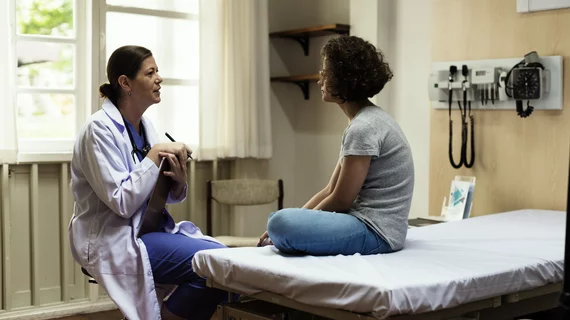CMS to pilot behavioral health treatment model
CMS is launching a new behavioral health pilot in a Medicaid demonstration project in Washington, D.C., the agency announced Nov. 6. The pilot expands treatment services for Medicaid beneficiaries diagnosed with severe mental illnesses or serious emotional disturbance.
The pilot is the first of its kind in the nation and D.C. is the first to receive federal approval of the Medicaid benefit after HHS told Medicaid directors about the opportunity at the end of 2018. The demonstration allows approved Medicaid programs to overcome a payment exclusion to treat short-term residents in institutions for mental disease.
“For too long, our system has failed to provide Americans with serious mental illness and their families the treatment and assistance that they need,” HHS Secretary Alex Azar said in the announcement. “Americans with serious mental illness too often end up homeless or in our prisons, when access to treatment could help them lead healthy lives.”
The approval for the pilot comes at a time when behavioral health deals are picking up, with investment interest in the space.
In addition to expanding behavioral health benefits, D.C. is expanding flexibilities to treat Medicaid beneficiaries with opioid use disorder (OUD) or substance abuse disorder (SUD). It is the 27th approved SUD demonstration, CMS noted. D.C. has been hard hit by the opioid abuse and overdose crisis, which claimed 68,000 lives in 2018, according to the CDC. Fatal overdoses in D.C. jumped 236% between 2014 and 2017, according to CMS, and about one-third of the area’s adults who are treated for OUD or substance abuse disorder have a severe mental illness.
“Today’s historic approval will substantially increase the range of services that are available to meet the needs of the District’s Medicaid beneficiaries who are diagnosed with serious mental illness and substance use disorder,” CMS Administrator Seema Verma said. “This integrated approach supports the District’s goals of reducing opioid misuse and overdose deaths––while expanding the continuum of mental health and substance use treatment options for individuals in need.”
According to the agency, the demonstration could also help the problem of homelessness in D.C. as a large proportion of chronically homeless people there have SMI, SUB or both. The pilot is expected to improve access to acute care, residential treatment, crisis stabilization as well as other mental health and substance abuse services.

